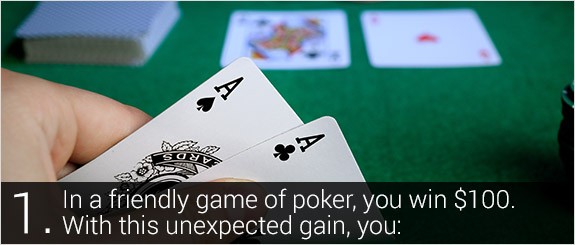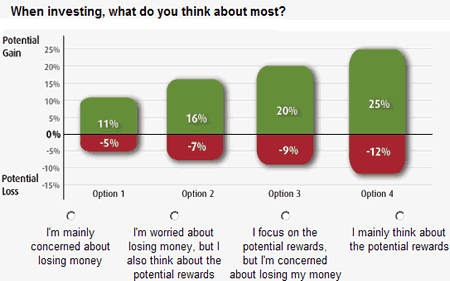What Is Your Risk Tolerance_4
Post on: 16 Март, 2015 No Comment

Submitted by David Geracioti on Friday, October 3, 2014 — 3:00pm
How do assess your stomach for risk in investments? By looking at when you need the money and your spending habits, a panel of advisors said. But the current market’s situation also is a factor in investors’ capacity for risk.
“The time to worry is when no one is worried about risk,” said Don Hutchinson, senior vice president of Goelzer Investment Management.
The panel, on asset management essentials, was held recently as part of National Financial Advisor Week in New York’s Times Square. This event, which attracted hundreds of onlookers, featured financial advisors giving tips on personal finance, ranging from retirement saving to college funding. The panels also focused on how people can get the most out of advisors. At the event, Jennifer Rufener of Dover, Ohio, won a sweepstakes for a free college education.
According to this panel of asset managers, institutional investors and individual investors are similar in at least one very important way: They are all human beings, and they remember the harsh bear market of 2008. “From an institutional perspective, board members are driving [the investment portfolios]. Like private clients, they remember 2008,” said Mike Giammatteo, principal at XPYRIA Investment Advisors.
The panel detailed how they assess a client’s risk tolerance. And, as any inveterate investor knows, there are at least two types of risk: quantitative and emotional. In putting a number on investors’ appetite for risk, the panelists examined time horizons (how long until they need to use their invested money), and current and future spending needs, among other things. And emotionally, the question was: Does the investor have the guts to stick to the investment plan?
Once an investor’s risk profile is quantified, asset managers can then build portfolios. To offset stock volatility, the panelists diversify among asset classes (say, for example, growth and value investments, real estate and bonds) and worldwide markets.

This panel of the three asset managers had varied opinions of the equity market: Is it over valued, under valued or fairly valued? Differences of opinion in capital markets is what, well, it’s what makes any market work. Hutchinson thought U.S. equities were “fully” valued. Giammatteo and Greg Lavine, of Altvest Personal Wealth Management thought the equity market, even after enjoying a five-year tear, had more room to run.
Neither their institutional nor private clients seem to be worried; these advisors’ phones are not ringing much. “Clients seem complacent,” said Lavine, like the other panelists, an independent registered investment advisor that manages the assets of institutions, endowments and private clients. One of the panelists even used the word “apathy” to describe investors’ mood.
Follow AdviceIQ on Twitter at @adviceiq .
AdviceIQ delivers quality personal finance articles by both financial advisors and AdviceIQ editors. It ranks advisors in your area by specialty, including small businesses, doctors and clients of modest means, for example. Those with the biggest number of clients in a given specialty rank the highest. AdviceIQ also vets ranked advisors so only those with pristine regulatory histories can participate. AdviceIQ was launched Jan. 9, 2012, by veteran Wall Street executives, editors and technologists. Right now, investors may see many advisor rankings, although in some areas only a few are ranked. Check back often as thousands of advisors are undergoing AdviceIQ screening. New advisors appear in rankings daily.














